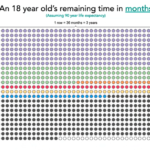On January 7, 2025, Mark Zuckerberg made an announcement relating to how Meta is changing the way it approaches content moderation. (Watch it here).
Titled “More Speech and Fewer Mistakes” the change is being promoted very much as a positive, however for our children and teenagers I struggle to see how it can do much more than cause trouble and confusion for.
The internet and social media has obviously given many a platform to be heard, which provides alternative views to mainstream media which can be often welcome. However it has also enabled the rise of influencers like Andrew Tate.
There is no way of knowing exactly how this will play out, but by removing fact checking there are potential risks for our children and teenagers. These risks could include;
Exposure to Harmful Content:
Reduced moderation on inflammatory and potentially harmful topics means that teenagers are more likely to encounter hate speech, conspiracy theories, and other distressing content. This could potentially normalize misinformation and toxic behaviours, making our kids vulnerable to radicalisation.
Increased Misinformation Risks:
Allowing “opinion-based” content and relaxing restrictions on controversial topics creates a fertile ground for misinformation. Combining this with AI technologies means those still developing critical thinking skills, may struggle to distinguish between credible information and false narratives.
Mental Health Concerns:
Although Meta cites studies suggesting no direct causation between social media use and poor mental health outcomes, reduced safeguards might exacerbate issues such as anxiety, depression, and body image concerns among teenagers. With fewer restrictions on harmful content, young people may face a higher risk of cyberbullying or being exposed to unrealistic beauty standards.
Commercial Exploitation:
Although Meta claims to limit advertising targeting teens to age and location, the broader reduction in oversight could lead to increased exposure to manipulative marketing or unsafe third-party apps, further complicating their online safety.
With all of this on the horizon there is even more reason for parents and carers to;
– Engage with our children more regularly on technology and ensure there is open dialogue
– Help our kids develop skills to critically evaluate online content.
– Review approaches to parental controls and ensure there are frequent conversations about digital safety at home.
For many parents this may appear to be overwhelming and confusing. Feel free to get in touch if you want to discuss some possible strategies.
Pete







